The demand for cataract surgery may be rising, but so are the ethical and practical dilemmas surrounding access to treatment, HSJ’s latest roundtable of experts, in association with Alcon, heard
Eye care, in common with so many other areas, is seeing rising demand but a flat line where resources are concerned. When it comes to cataract surgery, too many commissioners are responding by imposing what feel to many like arbitrary restrictions.
‘The message needs to go out there: if a patient is not managing in their daily life [because of cataracts] then they need access to the system’
In January 2014, HSJ supported by Alcon convened a roundtable of eye health experts to explore ways forward. How might the NHS meet the rising demand for cataract surgery – now and in the future?
There are, naturally, reams of figures and documents that demonstrate the rising demand for and subsequent imposition of restrictions to cataract surgery - most usually based on the “visual acuity” measure of reading letters of decreasing size from a chart. But consider this scenario to illustrate the point about the arbitrary nature of this measure.
Roundtable participants
- Larry Benjamin consultant ophthalmologist, Buckinghamshire Healthcare Trust
- Dr Parul Desai consultant ophthalmologist, Moorfields Eye Hospital Foundation Trust
- Rob Elek director of strategy and business development, Moorfields Eye Hospital Foundation Trust
- Cheryl Harding-Trestrail senior commissioning manager for planned care, West Hampshire CCG
- Anita Lightstone UK Vision Strategy programme director
- David Parkins board vice president, College of Optometrists
- Dr Waqaar Shah RCGP clinical champion for eye health
- Michael Sobanja director of policy, NHS Alliance and member of UK Vision Strategy advisory group (chair)
- Sandy Taylor RCN Ophthalmic Nursing Forum
- Katrina Venerus managing director, Local Optical Committee Support Unit
- Steve Winyard head of policy and campaigns, RNIB
One elderly care home resident visited recently by Dr Waqaar Shah, GP and the Royal College of GPs clinical champion for eye health, had cataracts and a measure of “visual acuity” severe enough to meet the threshold for consultant referral and consideration for surgery.
“She’s in her late 80s and we talked about the pros and cons and she decided that since what she mostly watches TV and her vision was fine for that, surgery was not for her,” said Dr Shah.
Another patient he saw that same week was a professor of theology whose work involves a great deal of reading. His cataract, said Dr Shah, was less serious in terms of his visual acuity measure - but much more severe in its consequence for his life and work. “For him surgery was a priority,” said Dr Shah.
‘People who cannot see become housebound and more dependent on others’
This scenario - played out week in, week out across the country - went to the heart of the debate: how can eye care services ensure that the people who will benefit the most have access to surgery? And can that benefit be demonstrated?
Larry Benjamin, consultant ophthalmologist, Buckinghamshire Healthcare Trust and a leading light in the eye care world, set the scene. There had been significant progress in improving access to cataract surgery since the Department of Health published its improvement plan, Action on Cataracts, in 2000.
For example, from 2000 to 2008, waiting times fell from over two years to just four months. The pathway had changed dramatically, with surgery now routinely day case rather than a five-day inpatient stay. New nursing roles were introduced.
“It was a remarkable piece of work that did a lot of good,” he said. “But now we are starting to see lists climbing again and I think the situation is hard at the moment.”
The picture, and this is backed up by research from the Royal National Institute of Blind People, is one of clinical commissioning groups increasingly imposing restrictions based not on how well a patient can function in their daily life but on the “arbitrary” visual acuity measure, as he put it.
Rising restrictions
“We are beginning to see restrictions causing problems,” he said. Even in areas where there are no restrictions, the public perception is that if they can afford it they had better go privately, he added.
“The message needs to go out there: if a patient is not managing in their daily life [because of cataracts] then they need access to the system.”
Steve Winyard, head of policy and campaigning at RNIB, agreed. Freedom of information requests over the last few years by the charity had painted a picture of rising restrictions overall, widespread variation in their application across the country and falling numbers of second eye operations.
A number of participants around the table counselled caution in taking these figures at face value, however.
‘As GPs seeing patients day to day, we see the enormous benefits that cataract surgery can have’
David Parkins, vice president of the College of Optometrists and a CCG commissioner, said closer examination of the data showed that even in areas where there are no restrictions to access to cataract surgery, there may be an 18-week referral to treatment backlog.
“The data is all chunked up and we need to be careful what we read into it,” he said. “It is quite complex and not as simple as restrictions.”
Parul Desai, consultant ophthalmologist at Moorfields Eye Hospital Foundation Trust, agreed. “You cannot look at the data in isolation,” she said.
But she did sum up the consensus around the basis on which patients need to access cataract surgery. “It must be defined by function,” she said. “Visual acuity is an indicator, but there is a responsibility for the clinician to show demonstrable need. Hand in hand with that is outcomes - and how do you measure that?” Her sense was that outcome measures are poor and Mr Benjamin agreed.
Enormous benefits
Which is not to say that patients do not benefit from cataract surgery - it is highly successful at restoring function and improving people’s lives. As Dr Shah noted: “As GPs seeing patients day to day, we see the enormous benefits that cataract surgery can have. People’s function improves, they can do what they want to do such as driving or using their fine motor skills.
“It also links to other areas such as risk of falling and levels of social isolation. People who cannot see become housebound and more dependent on others. But in today’s climate we have to think about how best to provide that service to people.”
He argued that the NHS should consider patients in the context of their medical history and their social and economic environment. “We should look at cataract surgery as one element to help people live full and independent lives,” he said.
It was a point that led into another strand of debate. Not every patient with cataracts needs or indeed wants surgery - but where and how should that decision be reached?
‘Experience shows that the vast majority of GPs do not have the time or skills to deal with onward referrals - and who needs to be referred’
Anita Lightstone, UK Vision Strategy programme director, suggested that patients should have enough information to decide whether they want surgery before referral to secondary care. That implied good assessment and counselling in primary care. “That will improve efficiency of the service and improve patient experience,” she said.
Michael Sobanja, chairing the debate, pointed out that referral rates from GPs to secondary care vary widely. Were GPs the right gatekeepers?
Dr Shah admitted that too often GPs merely rubber stamp referrals made by optometrists detecting cataracts rather than spending time with patients, helping them to understand the risks and benefits of surgery.
But he added: “In this day and age GPs are thinking closely about referrals and are becoming better placed to have these discussions with patients.”
Katrina Venerus, managing director of the Local Optical Committee Support Unit, was not convinced. “If optometrists detect an eye abnormality, they are required to refer it [to the GP],” she said.
“Experience shows that the vast majority of GPs do not have the time or skills to deal with onward referrals - and who needs to be referred.” Given the right framework, optometrists are ideally placed to counsel patients, she added.
It fell to Sandy Taylor, of the Royal College of Nursing Opthalamic Nursing Forum, to raise the obvious missing element in the discussion so far: asking patients what they want. “People are pretty good at telling you if [their vision] is bothering them,” she pointed out.
High expectations
Rob Elek, director of strategy and business development at Moorfields Eye Hospital Foundation Trust, backed her up. “People arrive well informed. It is all very well for us to talk about rationing but if a patient wants an operation they will find a way to get it.”
Patient expectations are high on the commissioners’ agenda, as Cheryl Harding-Trestrail, senior commissioning manager at West Hampshire CCG, outlined. “One of the things we try to do is look at the whole pathway and the whole patient and ask what is the best fit?”
‘The danger is that we will give the patient what they want rather than what they need’
West Hampshire CCG is supporting development of an integrated pathway to make sure the GP, optometrist and ophthalmologist work together.
“Patients need to be engaged and offered the right choice for them,” she said. “That should be the principle whether it happens with the GP or the optometrist.”
This kind of team approach found favour round the table as speakers urged all players to put aside professional territories to work in the interests of patients.
“The whole team needs to come together,” said Mr Benjamin. “The danger is that we will give the patient what they want rather than what they need.”
Dr Shah added: “We need to start with the presumption of access and then temper down whether there is a need for referral.”
This was a matter for local commissioning, argued Ms Venerus. “It does not matter who does it,” she said. “Whether it is specialist GPs, specialist nurses or optometrists commissioned to do a full assessment in conjunction with the patient.”
Up to a point, suggested Mr Elek. In the increasingly fragmented NHS where one hospital might be working with multiple commissioners, local variation made it difficult for providers to respond to this demand for teamwork. “It’s an absolute nightmare,” he said.
So was there a role for national guidance and national commissioning? Mr Parkins certainly thought so. The split between commissioning of secondary care services by CCGs and primary care and specialist care by NHS England meant that oversight of the whole system had been lost, he argued.
Mr Elek agreed. “I am not in favour of national guidance but there is a requirement for a national framework around the optimal eye care pathway.”
Developing guidance
Moves to address this are already under way and last year the Royal College of Ophthalmologists convened the Clinical Council for Eye Health Commissioning, bringing together leading professional and patient groups “to offer united, evidence-based clinical advice and guidance to those commissioning and delivering eye health services in England on issues where national leadership is needed”.
Locally, a number of areas have developed eye care networks or forums. Dr Benjamin pointed to the eye care forum recently convened in his area. “Until we start coming together we will be working in silos,” he said.
Mr Winyard did not feel these initiatives went far enough and he delivered an impassioned critique of the leadership shown by the royal colleges and NHS England. He cited the “scandalous” pushing back of National Institute for Health and Care Excellence quality standards for eye health from 2014 to 2018, a decision that had passed with barely a protest - and would not have happened had there been a strong voice for eye health.
‘There is no national clinical director for eye health and no one to speak up for eye health’
Eye health was not in many places part of the joint strategic needs assessment, meaning it had low visibility on local public health plans. Private companies are bidding for - and winning - contracts for carrying out straightforward cataract operations and leaving NHS units unviable.
“In other areas, the royal colleges do speak out and they are heard by politicians,” he said. “We must increasingly speak out about the national scandal of people losing their sight unnecessarily because we do not have the resources to treat them.”
The Clinical Council was welcome (RNIB is a member) but did not make up for the lack of an eye health voice at NHS England. “There is no national clinical director for eye health and no one to speak up for eye health,” he added.
“I do not care whether it is an ophthalmologist or an optometrist. I just want someone there when decisions are made.”
Unfortunately, NHS England was not able to joint the debate - Dr David Geddes, director of primary care, had been due to attend - so was not able to respond at the event. HSJ subsequently invited his response (see box, top left).
Prime contractor model
Mr Sobanja brought the debate to a close with a final question: if you could create one change for the next year, what would it be? His own thoughts were around a “prime contractor” model in which one provider is commissioned for the whole pathway.
Mr Winyard wanted to see NICE develop quality standards earlier than 2018. Ms Lightstone would ban the words primary and secondary care and see professionals come out of their silos. Dr Shah and Ms Harding-Trestrail developed this idea, calling for wholesale redesign of the patient pathway from beginning to end. Ms Venerus and Mr Elek added that there needed to be a national element to this redesign.
Mr Parkins added a focus on quality to the mix, calling for service specifications and budgeting that covers the whole pathway.
Mr Benjamin wanted to see better data collection. “Unless we do that we will not know anything about outcomes,” he said. Dr Desai added that demonstraing outcomes would help make the case for cataract surgery to commissioners and providers.
Ms Taylor again took the patient perspective. “The initial consultation should be clear and concise and the patient should know exactly what will happen.”
The messages from this roundtable were consistent. Eye health needs a coherent national overview to inform local commissioning. Local commissioners need to move beyond arbitrary measures and look at function if those who would benefit most from cataract surgery are to receive it. They need to commission new whole patient, whole system pathways.
At a local level, providers need to work much more closely to develop these new pathways that make the best use of skills in the local provider community. Eye care needs to be on the public health agenda.
The vision is clear. Now it is up to the eye care community to shout it from the rooftops.
NHS England’s response: David Geddes
We recognise the way that poor eyesight and visual disability impacts significantly on a person’s ability to engage fully with society. Visual loss isolates patients from family and friends and visual disability exists as a common comorbidity, compromising a patient’s ability to cope with many long term conditions.
This is why the primary care strategic framework for eye health call to action will be out for consultation within the next few months. This will be the ideal platform to provide wider views and comments on how eye health services can have a system-wide impact.
Collaboration with the local professional networks, CCGs and local authorities will be vital to ensure that national guidance is being developed, implemented and targeted so that we achieve the best outcome for patients.
We must ensure that eye health is considered in its entirety; from health promotion and early identification, to management of the acute and chronic disease and just as importantly how we best provide rehabilitation and support to those with non-recoverable illness.
Supporting local networks will be the eye health network steering group, which is already working closely with the Clinical Council for Eye Health Commissioning, Public Health England and voluntary organisations to ensure the system is effectively aligned with the standards and priorities we would like to see implemented for patients across England.
However, it is clear that we cannot transform eye care services from the centre. A clinical strategy has to be developed and led locally, while being aligned with the national strategic framework for the NHS.
This is why we are developing local clinical leadership through our local eye health networks, which, working with CCGs, will lead the strategic eye health needs assessment and develop and implement integrated local eye healthcare pathways.
Dr David Geddes is director of primary care at NHS England
The evolution of cataract surgery: Rob Fisher
The combination of increased pressure on NHS budgets and the ageing population poses serious questions about how cataract surgery can be best delivered to meet the needs of patients in the years ahead.
Cataract surgery is a procedure which has the capacity to restore sight and improve the quality of life for patients who are no longer able to carry out day to day activities because of the condition.
Evidence in recent years of local rationing has caused concern among many within the eye health sector that some patients who are in need of cataract surgery are unable to access treatment.
Alcon’s mission is to improve people’s quality of life by helping them to see better and we want to work in partnership with the NHS and the wider eye health sector to help make this a reality.
With the NHS facing ongoing financial austerity as well as a rising demand for treatment, how can the provision of cataract surgery evolve to meet this challenge?
We are therefore pleased to have been able to provide a platform for this enlightening roundtable debate.
We hope the sector will continue to work together in taking forward these constructive ideas to benefit the health system, the medical community and patients in the coming years.
Rob Fisher is head of market access at Alcon




















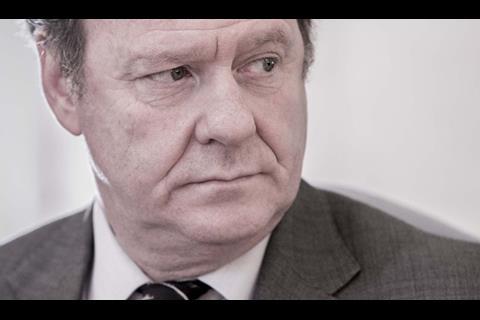
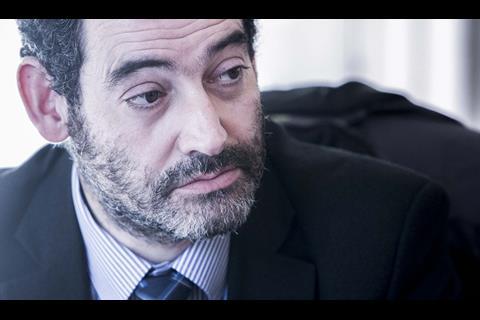
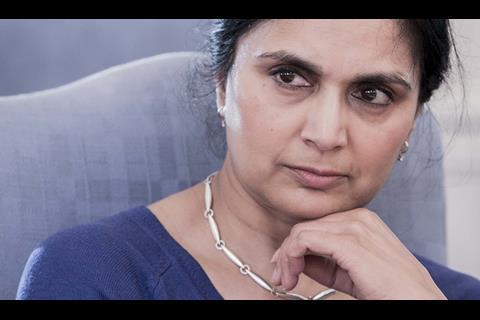
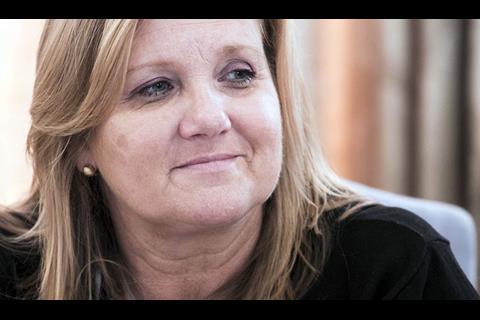
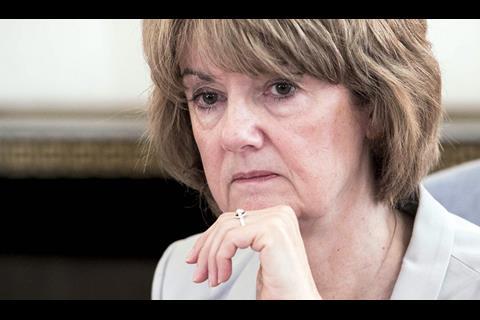
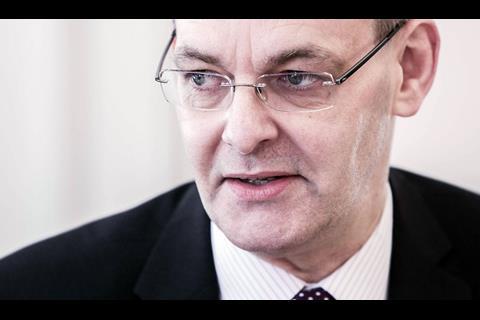
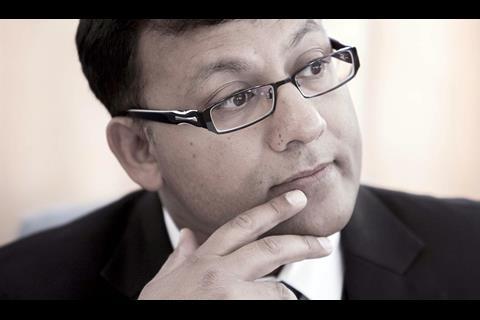
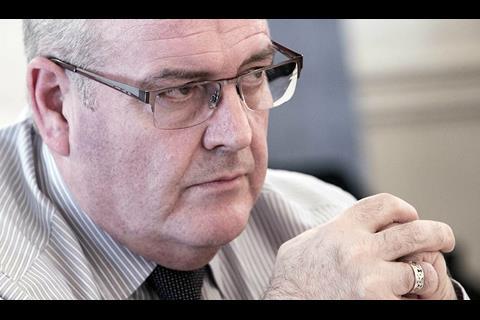
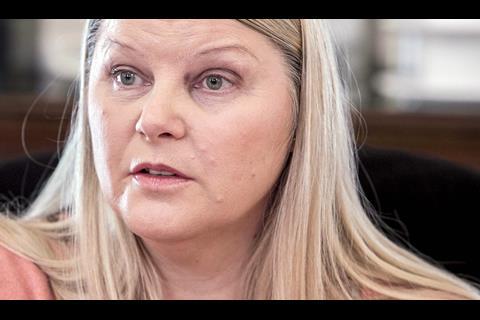
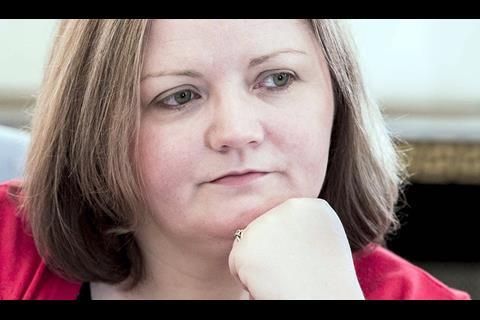







No comments yet